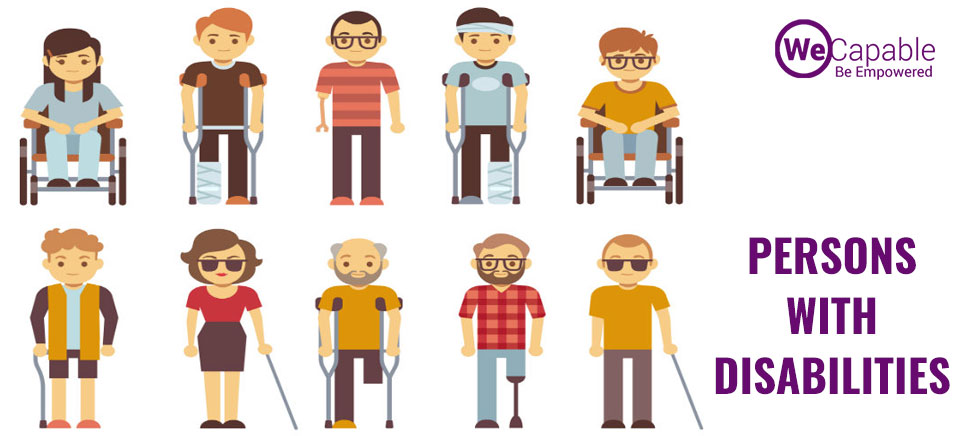What Disability Does David Muir Have? Exploring Public Curiosity About Health
Detail Author:
- Name : Otha Casper II
- Username : akris
- Email : damian.paucek@hermiston.com
- Birthdate : 1984-04-08
- Address : 2399 Ebert Ways Boylefurt, CT 67246-0880
- Phone : 628-322-4578
- Company : Mayer, Walker and Daugherty
- Job : Fire Inspector
- Bio : Repudiandae sint voluptas beatae est eos. Quibusdam aliquam aliquid distinctio culpa adipisci possimus culpa. Deleniti est et et architecto. Qui qui rerum ipsam nemo dolorum officiis.
Socials
linkedin:
- url : https://linkedin.com/in/senger1996
- username : senger1996
- bio : Dolores sunt inventore non eos aut quo in.
- followers : 6593
- following : 942
instagram:
- url : https://instagram.com/ardella_senger
- username : ardella_senger
- bio : Officia dolores officiis sit ab. Voluptas vitae animi et corrupti. Est error qui vel atque et.
- followers : 1606
- following : 1013
twitter:
- url : https://twitter.com/ardella_senger
- username : ardella_senger
- bio : Quaerat sint iure et mollitia. Officia alias ducimus vel aperiam ipsam omnis voluptatem odio. Quia beatae voluptas aut illum doloribus sit consectetur quia.
- followers : 5576
- following : 1722
Many people wonder about the health of public figures, and it's quite natural to feel curious about someone who appears on our screens almost every day. When it comes to David Muir, the respected anchor of ABC World News Tonight, questions sometimes pop up online, like "What disability does David Muir have?" This kind of query, you know, often comes from a place of genuine interest in the well-being of familiar faces. Yet, it also brings up bigger conversations about privacy and how we talk about health conditions, which is pretty important, as a matter of fact.
There is no publicly available information or statement from David Muir himself, or from ABC News, indicating that he has a disability. Public figures, just like anyone else, have a right to their personal health privacy. So, any speculation about his health without confirmed information would not be appropriate, you see.
This curiosity, however, does give us a chance to think more broadly about what disability means and how it affects people's lives. It's a topic that touches many, many individuals, and understanding it better can help us all be more thoughtful and inclusive in our daily interactions, which is definitely a good thing, to be honest.
Table of Contents
- David Muir: A Brief Look
- Understanding Disability: What the Experts Say
- Public Figures and Private Health
- Common Questions About David Muir and Health
David Muir: A Brief Look
David Muir has been a prominent figure in American journalism for many years, really. He is widely recognized for his work as the anchor and managing editor of ABC World News Tonight, a role he took on in 2014. Before that, he served as a correspondent and anchor for various ABC News programs, so he's been around for quite a while, you know.
He has reported from numerous locations around the world, covering major events and interviewing many influential people. His reporting style is often described as straightforward and empathetic, which has helped him connect with viewers across the country, arguably. He is known for his dedication to journalism and his calm demeanor, even during breaking news situations, that's for sure.
Here is a quick overview of some personal details:
| Full Name | David Jason Muir |
| Date of Birth | November 8, 1973 |
| Place of Birth | Syracuse, New York, USA |
| Occupation | Journalist, Television News Anchor |
| Current Role | Anchor and Managing Editor, ABC World News Tonight |
Understanding Disability: What the Experts Say
When we ask "What disability does David Muir have?", it's a chance to really think about what disability means. It's not always about something visible, and it's also about more than just a health condition. The World Health Organization (WHO), for example, provides some very helpful insights into this topic, which are useful for all of us, actually.
Disability as an Interaction
According to the WHO, disability results from the interaction between individuals with a health condition, such as cerebral palsy, Down syndrome, or depression, with personal and environmental factors. This means that a health condition alone doesn't always define disability. It's how that condition interacts with the world around a person, and their own personal situation, that creates disability, you know. For instance, an individual might have a health condition, but if their environment is fully accessible and supportive, they might experience fewer limitations. On the other hand, someone with a similar health condition could face significant barriers if their surroundings are not accommodating, which is a big difference, really.
Disability, then, refers to the interaction between individuals with a health condition, such as cerebral palsy, cognitive impairment, or depression, and personal and environmental factors. This way of looking at things shifts the focus from just the individual's body to the broader context in which they live. It means that things like inaccessible transportation, buildings without ramps, or a lack of understanding from others can be just as much a part of someone's experience of disability as the health condition itself, which is pretty insightful, in a way.
The Rising Global Picture of Disability
The number of people living with a disability is actually on the rise globally. This increase is due to a few different reasons, so. Population aging plays a big part, as older people are more likely to experience chronic conditions. Also, the rapid spread of chronic diseases, often noncommunicable ones, contributes to this growing number. Improvements in the ways we measure disability also mean we're getting a more accurate count of those affected, which is important, to be honest.
In Europe alone, an estimated 135 million people live with a disability, which is a really significant number. This global estimate for disability is on the rise due to population aging and the rising prevalence of chronic conditions due to noncommunicable diseases, as well as improvements in the methodologies used to measure it. This trend means that more and more people are experiencing disability, and it highlights the need for societies to adapt and become more inclusive, you know, for everyone's benefit.
Unmet Needs and Societal Barriers
The WHO fact sheet on disability and health provides key facts and information on unmet needs for health care, secondary conditions, how lives of disabled people are affected, and barriers to their participation. Many people with disabilities face challenges getting the health care they need, which is a serious issue. They might also experience secondary conditions that arise because of their primary health condition or due to a lack of proper support, which is often overlooked, arguably.
The lives of disabled people are often affected by various barriers, not just their health conditions. These barriers can be physical, like buildings without ramps, or attitudinal, like prejudice and discrimination. Such environmental factors, such as inaccessible transportation, can really limit someone's ability to participate fully in society. It's a reminder that society plays a big role in creating or removing obstacles for people with disabilities, so.
Health Equity for Everyone
Persons with disabilities have the right to the highest attainable standard of health. This is a fundamental principle, and it means that everyone, regardless of their health condition, should have fair opportunities to be healthy. The WHO's Disability Health Equity Initiative aims to close the avoidable health gaps between persons with disabilities and the broader population, which is a very noble goal, really.
The Health Equity for Persons with Disabilities Guide for Action, or the Disability Inclusion Guide for Action, provides practical guidance on the process that ministries of health should lead. This guide helps countries figure out how to make their health systems more inclusive and ensure that people with disabilities get the care they need. It’s all about making sure that health care is accessible and equitable for everyone, which is, you know, absolutely essential for a fair society. You can Learn more about disability on our site, and it's a good place to start thinking about these topics.
Public Figures and Private Health
When we think about public figures like David Muir, it's easy to forget that they are individuals with private lives, too. Their health information is personal, and they are not obligated to share it with the public. Just because someone is on television, it doesn't mean we have a right to know every detail about their health or personal circumstances, you know. Respecting privacy is a big part of being a considerate audience, which is something we should all try to do, frankly.
The curiosity about a public figure's health, while understandable, should always be balanced with respect for their personal boundaries. If David Muir had a disability, it would be his choice whether or not to discuss it publicly. Without any official statement, any discussions are purely speculative, and that's not really helpful or accurate, is that. Our focus should probably be on his work and contributions, rather than on unconfirmed personal details, which is a more respectful approach, in some respects.
It's also important to remember that disability is a broad term, as we've discussed, covering a wide range of conditions and experiences. It's not always visible, and it doesn't define a person's abilities or worth. So, even if a public figure did have a disability, it wouldn't change their professional capabilities or their value as an individual, which is pretty clear, honestly. We should always aim to understand and support people, rather than making assumptions about their health or capabilities, and you can Learn more about our mission to promote understanding and inclusion.
Common Questions About David Muir and Health
People often have questions about David Muir's health, perhaps noticing a slight change in his voice or appearance over time, which is natural for anyone on camera for many years. These questions typically stem from general concern or simple curiosity about someone they see regularly, rather than any specific known issue, you know.
Here are some questions people frequently ask, along with some general thoughts:
Has David Muir ever spoken about a health condition?
As of now, David Muir has not publicly discussed having any specific health condition or disability. He keeps his personal life, including his health, private, which is his right. Any rumors or speculation about his health are not based on confirmed information from him or his representatives, so it's best not to assume, really.
Is there any public information about David Muir's well-being?
No, there is no public record or official statement indicating any health issues or disabilities concerning David Muir. He continues to perform his duties as a news anchor regularly, which suggests he is in good health and able to fulfill his demanding role. People often notice small things, but that doesn't mean there's a larger story, you know.
Why do people ask if David Muir has a disability?
Curiosity about public figures is quite common, honestly. Sometimes, slight changes in a person's appearance or voice over time, which are normal parts of aging or just daily life, can lead to questions. Without any official information, these questions often arise from simple observation and the human tendency to wonder about familiar faces, which is understandable, in a way. It's important to remember that such questions are often just that – questions – and not necessarily based on any real evidence.



